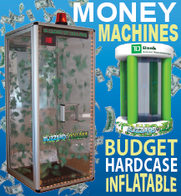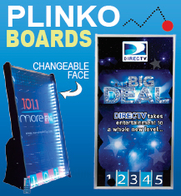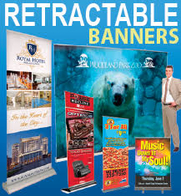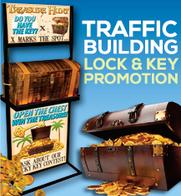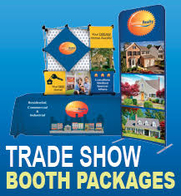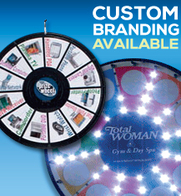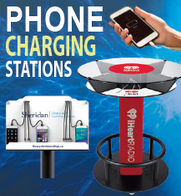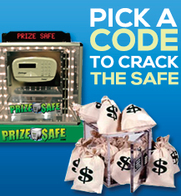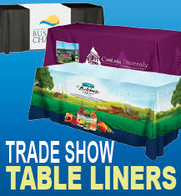 Hello class. It’s time for your next lesson! In this lesson we will be covering how to turn your booth staff into superstars; from how to select the most qualified staffers to training them for booth duty. Did you know that your booth staff plays one of the most important roles in forming an opinion about your company in the minds of attendees? No matter how well you organized everything else, your booth staff, their behavior and their techniques will be the single biggest factor in making the show a success or a failure.
Hello class. It’s time for your next lesson! In this lesson we will be covering how to turn your booth staff into superstars; from how to select the most qualified staffers to training them for booth duty. Did you know that your booth staff plays one of the most important roles in forming an opinion about your company in the minds of attendees? No matter how well you organized everything else, your booth staff, their behavior and their techniques will be the single biggest factor in making the show a success or a failure.
You will need to make sure your booth staff understands that physical appearance, choice of words, general demeanor and their level of knowledge and enthusiasm are what determines the impression attendees will have about your company. Following the steps in this lesson you will be able to select and train the ideal booth staffers for your exhibiting.
Ideal Booth Staffer
The ideal booth staffer is a people person, extremely knowledgeable about your products and services, has high energy and is very enthusiastic about your company; and while we’re at it, also a good sales person. Odds are most of your employees or co-workers will have some of those traits, but rarely all of them. As a result, you will probably have to create shifts of people that have all those skills and talents in a combined form.
Creating Highly Effective Booth Staffers
Booth staff training is extremely important to the success of your trade shows. There is no such thing as too much booth training nor is there any employee that knows it all. You should either hire an outside consultant to conduct this training, or develop your own training program. In either case the training needs to prepare your staffers to sell and function in a trade show environment, with competing sights and sounds.
Role Playing
One of the most effective methods for training booth staff is by role playing; practicing the techniques that will lead to more comfortable and confident members of your trade show team. If at all possible, organize several of those role-playing sessions, consider scheduling by booth staff teams scheduled to work the booth together. This not only makes sure that everyone can attend; repetition also helps your booth staff to overcome initial shyness often associated with such an activity.
Interacting With Attendees
Through booth staff training and role playing, your staffers should be taught how to interact with attendees gracefully and make them feel comfortable in your booth. Teach staffers to make their conversations warm and inviting, giving the prospect a reason to stay. They accomplish this by knowing what type of questions to ask, making the conversation focused on the prospect’s needs and following the 80/20 rule; staffers listening 80% of the time, and talking 20% of the time. It’s important for them to allow prospects the opportunity to open up and start talking about their product needs, what their work involves and their decision making power.
Qualifying Attendees
Booth staffers should understand that their conversations should be focused on gathering the data for them to draw a conclusion from. To truly understand what an attendee is looking for, booth staffers should be prepared to ask open ended questions. These are questions that require more than a yes or no answer, to get the prospect to explain what their needs and problems are, so staffers can properly qualify them; and gauge how much time to devote to them. A good “rule of thumb” to follow is:
- Engage: 30 seconds
- Qualify Prospects: 2 minutes
- Qualified Prospects: Spend about 10 minutes discussing needs and/or conducting a demonstration
- Unqualified Prospects: Disengage
- Close: In about 1 minute
Gathering Lead Data and “Closing” with Attendees
Staffers also must make sure to gather complete lead data and know what the most critical information to gather is, so the sales team can effectively follow up with prospects. Be sure to have a clearly defined lead process before the show and include this information as part of the training session.
Describe to staffers that once a prospect is determined to be qualified and all their questions have been answered, it is time to “close” them. Using the lead system selected, have them collect contact information and complete data about specific needs, such as purchasing time frame, purchasing authority, etc.
Have staffers describe the follow-up process to the attendee and give a handshake before the prospect leaves the booth. Once they leave, the staffer should add notes from their conversation. The notes and data collected will help send the appropriate material after the show and enable the sales person to adequately prepare before calling the prospect.
These are the essential components of any effective booth staff training program. If you are looking to implement a program yourself use this lesson as a guide. If you are looking to hire a trainer, ask questions about how they would conduct the different elements of this lesson. Now it’s time for your homework! Bye for now.
Jonathan Edelman provides helpful advice about trade show strategies. With years of experience in the trenches, he is an expert on booth displays, follow up techniques, and using trade show marketing strategies to boost revenue.








